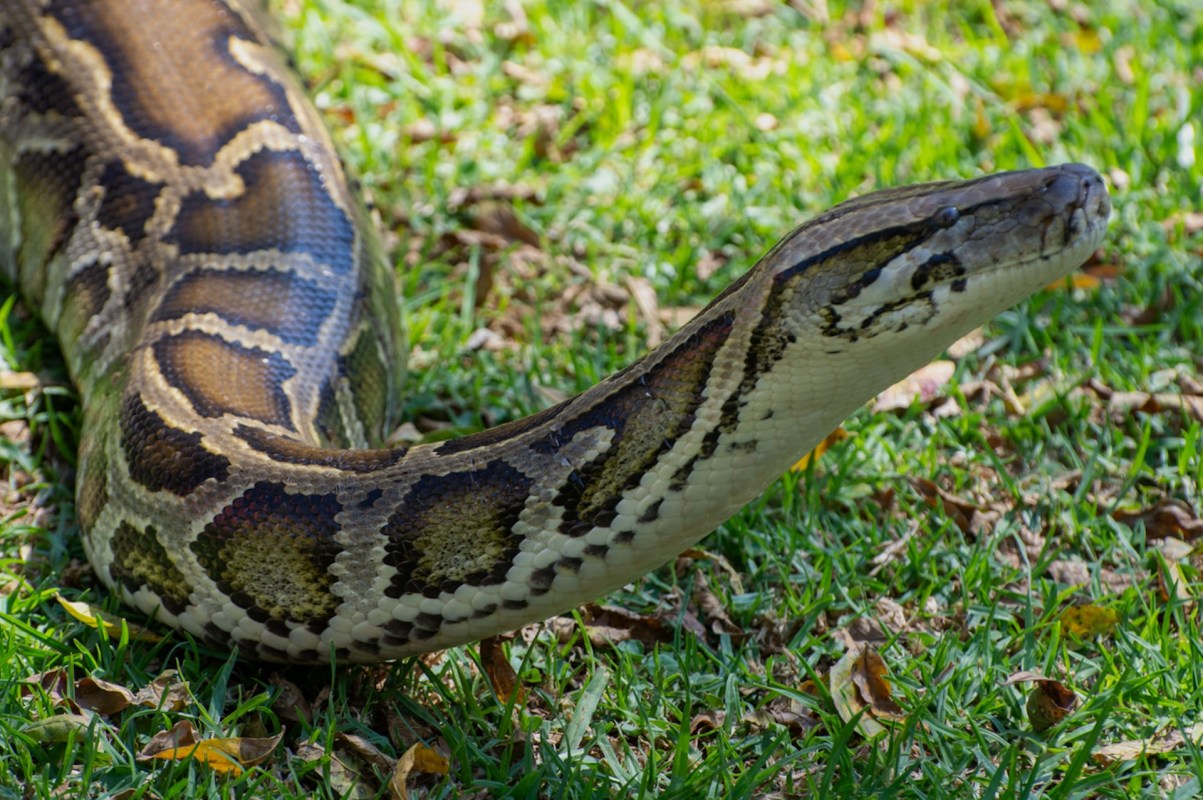Not many people will jump at the chance to search for snakes in the wild. Paul Hobbs was born to do it.
The Tennessee resident traveled to the Sunshine State last year with his father, son, and brother-in-law and captured 20 Burmese pythons to win the $10,000 top prize in the Florida Python Challenge. The family tradition started with Hobbs and his dad, Tom, who has won the novice category in the event, which is among the events that help raise awareness about dangerous invasive species and remove them from areas.
"As soon as you see one, the adrenaline just kicks in. You're all flying out of the vehicle and ready for the ride," Hobbs told Local 10 News.
More than 200 of the snakes were captured and killed during the 10-day hunt. Each can lay up to 100 eggs. Since 2000, almost 20,000 pythons have been caught in Florida — though that's a drop in the bucket since as many as 300,000 live in the Everglades, according to the state Fish and Wildlife Conservation Commission.
"It becomes the top of the food chain," Ron Bergeron, South Florida Water Management District governing board member, said. "We have found a full, whole deer inside of a python — up to a seven-foot alligator.
"... These things can get up to 20 feet long and up to 200 pounds."
Contractors paid by the state to hunt pythons year-round have removed 11,000 of the creatures since 2017, per the Miami Herald, but a U.S. Geological Survey report called eradication "likely impossible."
"They're an apex predator," FWC nonnative fish and wildlife coordinator McKayla Spencer told the outlet. "Essentially when they become adults, there's really nothing that preys on them.
" ... We don't currently have a way to eradicate them, but in the last few years, we've made some great strides. Every python removed is one less python to harm our native species."
To compete in the challenge, participants must complete a training course. They are disqualified if they kill a native snake or inhumanely kill a python. Burmese pythons and other invasive species in Florida prey on white-tailed deer, American alligators, Key Largo woodrats, white ibises, marsh rabbits, and gopher tortoises.
The Everglades is a 2 million-acre subtropical wetland that once featured uninterrupted flowing water over an area nearly four times as large. This effort and others, such as a $1 billion Kissimmee River restoration project, are underway to restore some of its natural glory.
Join our free newsletter for cool news and cool tips that make it easy to help yourself while helping the planet.









